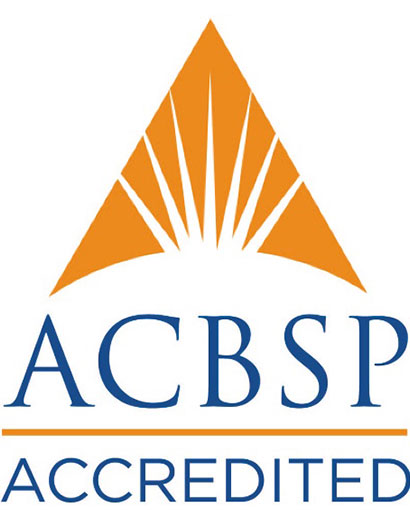Do I Need Work Experience to Pursue an MBA?
27 September, 2024
 Whether you have years of job experience or you’ve just completed your undergraduate degree, an MBA is an excellent way to gain advanced business knowledge and the skills needed to reach your career aspirations. Many MBA-seekers are professionals who, after working for a few years, are looking to bolster their career and pursue management. That said, an MBA can be just as beneficial to those who earn one early in their careers.
Whether you have years of job experience or you’ve just completed your undergraduate degree, an MBA is an excellent way to gain advanced business knowledge and the skills needed to reach your career aspirations. Many MBA-seekers are professionals who, after working for a few years, are looking to bolster their career and pursue management. That said, an MBA can be just as beneficial to those who earn one early in their careers.
While many MBA programs require work experience, other programs take a more holistic approach when looking at applications. It is helpful for early-career professionals and recent college graduates without a lot of experience to understand what additional qualifications might help them stand out from other applicants. Even if you don’t have a few years of work experience, your involvement with internships, part-time jobs, volunteering, and more are relevant to your application as well as your coursework.
In this article, we’ll explore what MBA programs look for in applicants, how to pursue an MBA without prior work experience, and why getting your MBA early could be the best decision for your future career aspirations.
Benefits of Earning an MBA Early
Completing an MBA program before you enter the workforce helps you hit the ground running. With coursework that expands your skills and knowledge of different areas of business — such as finance, marketing, and accounting — you can quickly position yourself for management and leadership roles.
What You Can Earn With an MBA
Individuals who choose to pursue an MBA at an early stage of their career may be rewarded with significantly higher earnings over the course of their employment.
The median starting salary for new MBA hires was estimated to be $125,000 in 2023, according to the Graduate Management Admission Council’s Corporate Recruiters Survey — a $10,000 increase over the previous year.
Below are the median salaries of three careers, with and without an MBA:
| Median Salary without an MBA | Median Salary with an MBA | |
|---|---|---|
| Finance Manager | $120K | $130K |
| Marketing Manager | $134K | $161K |
| Medical and Healthcare Services Manager | $90K | $192K |
*Salary information was taken from Lightcast Labor Insights. Job postings which requested that the candidate have an MBA were compared with job postings that did not specify an MBA.
In addition to increased earning potential, there are several benefits to earning an MBA early:
- Increased job opportunities
- Skill development
- Career acceleration
- Expanded professional network
Tips for Pursuing an MBA Program Without Work Experience
Some universities may put more focus on life experiences and undergraduate education in their MBA programs, making these options accessible to professionals at any stage of their career. For example, the University of Northwestern Ohio’s online MBA does not require previous work experience (though any work experience you do have may help you be more successful in the program).
If you know that you want to pursue an MBA before you enter the workforce, there are ways you can leverage your life experiences to showcase familiarity with professional environments and business outcomes.
Internships
Business internships are a popular way to gain and show work experience. Internships primarily entail learning about how a business or industry typically operates. If you have internship experience, you may have helped create a presentation, which requires teamwork and time management skills. Or perhaps you conducted a research project, showing that you understand how to search for and find relevant and useful information. Internships also show familiarity with the standards of the business environment and demonstrate experience navigating organizational culture.
Part-time or Work-Study Jobs
Part-time jobs can be another method of showing experience. For example, a retail job requires excellent communication skills with both customers and coworkers and an understanding of POS and inventory technology.
If you worked a part-time or work-study job while earning your undergraduate degree, you have an understanding of time management and prioritization, and you likely know how to meet deadlines when facing conflicting responsibilities. You may also have had to create a budget for yourself, another business-related skill.
Volunteer Experience
Volunteering is another rich source of business-related knowledge and skills. If you’ve organized charity drives, you’ve had to coordinate with other volunteers, delegate tasks, and promote the event to the public. Other volunteer leadership may involve securing permits, ensuring compliance with local regulations, or enlisting other volunteers. Volunteering as a tutor or mentor demonstrates commitment and strong interpersonal skills.
Group Projects
Consider the group projects or presentations you worked on in college as a way to showcase business-related skills. You can show how you collaborated with others to complete an assignment by developing a schedule and delegating tasks. Bringing various parts of an assignment together requires a lot of teamwork: sharing your feedback with the group and receiving feedback on your own contributions .
Sports and Extracurriculars
Participating in clubs, sports, or other activities give you a wealth of transferable skills and business-related experience. Extracurriculars are especially valuable if you’ve taken the lead in organizing events, planning meetings, or handling administrative tasks to keep the club or team running. If you’ve participated in a team sport or group extracurricular (like choir or theater), you have the unique skills of understanding each individual’s strengths and weaknesses and creating optimized strategies based on that knowledge.
Your Personal Life
Many individuals overlook how their own personal hobbies and interests can demonstrate business-related skills and knowledge. Perhaps you’ve organized a community arts or music festival that required you to solicit corporate donations, sell tickets, and secure venues. Even solitary activities can require relevant skills; you might have an ongoing blog, newsletter, podcast, or video channel that showcases your writing, speaking, editing, or graphic design skills. Personal projects like this show specialized knowledge and that you keep up with trends and developments in a certain field.
Finally, there may be incidents in your personal life where you had to develop or refine business skills and knowledge. If your family are non-native English speakers, perhaps you’ve helped them to translate in medical or legal situations, which show that you understand how to communicate complex ideas.
About the Online MBA from UNOH
The University of Northwestern Ohio offers an online Master of Business Administration degree for working adults seeking career advancement amid a busy lifestyle. This convenient advanced degree is taught by doctorate-level faculty who are experienced business professionals and educators.
At UNOH, we’re committed to providing an affordable degree option to help students catapult existing careers to new heights or pursue higher levels of new employment. Our MBA courses are 100% instructor-led and can be completed in less time and with less debt than other university MBA programs.
Request a brochure to learn more or start your application today.



